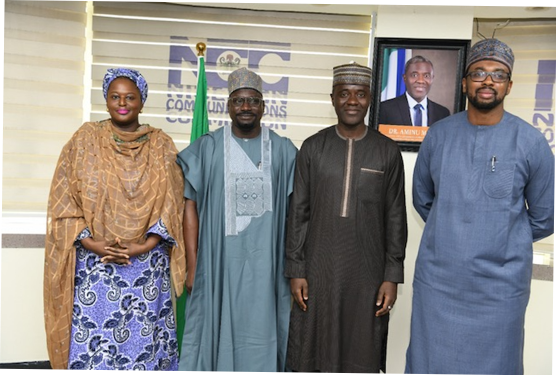
The Nigerian Communications Commission (NCC) has inaugurated the NCC–REA Collaboration Committee, a key initiative to promote digital and energy inclusion through the deployment of renewable energy solutions for telecom infrastructure in Nigeria.
The inauguration ceremony, held on Friday, June 27, 2025, at the NCC headquarters in Abuja, was led by the executive vice chairman of the commission, Dr. Aminu Maida and attended by the managing director of the Rural Electrification Agency (REA), Abba Abubakar Aliyu, alongside senior executives and committee members from both organisations.
In his remarks, Maida described the partnership as a strategic response to Nigeria’s twin challenges of energy and connectivity deficits, particularly in rural and underserved communities. He noted that while telecom infrastructure depends on reliable power to operate effectively, the demand from digital services can also drive the adoption and expansion of renewable energy systems.
“Whether it’s powering a base station or enabling a child to access digital learning, this collaboration has the potential to transform lives,” Maida said.
He emphasised that the initiative aligns with President Bola Ahmed Tinubu’s ‘Renewed Hope’ agenda and is designed to foster inclusion, reduce inequality and create shared prosperity by expanding access to both energy and digital services.
“This is not just about infrastructure; it is about improving livelihoods, bridging the divide and ensuring that no community is left behind in Nigeria’s digital and energy transformation,” he added.
Maida urged the committee members to approach their mandate with creativity, precision and a unified sense of purpose.
On his part, Aliyu welcomed the collaboration, expressing strong optimism that the joint effort would unlock sustainable development opportunities for millions of Nigerians living beyond the reach of conventional infrastructure.
In a statement signed by the NCC’s acting head of public affairs, Nnenna Ukoha the NCC–REA Collaboration Committee is tasked with co-developing integrated solutions, including the use of renewable energy to power telecom sites, data sharing for improved planning, coordinated funding strategies, and monitoring socio-economic impact through measurable indicators.
The committee is expected to serve as a benchmark for inter-agency cooperation, driving progress in line with Nigeria’s National Broadband Plan and Sustainable Development Goals.


